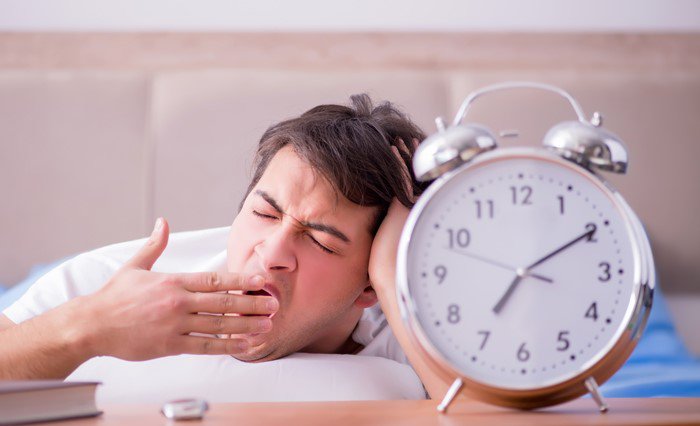Going to bed on an empty stomach: Should it be?
This is an automatically translated article.
Many people tend to feel very hungry near bedtime and make them crave more. While going to bed on an empty stomach is not harmful to your health, it can significantly affect the quality of your sleep.
1. Why do you feel hungry when you go to bed?
Going to bed on an empty stomach may not affect your health if you are still meeting your daily nutritional requirements or are following a healthy weight loss plan. In some specific cases, even if you follow a nutritious diet, you may still feel hungry before bed.
Here are some reasons why you feel hungry at bedtime and whether these are issues that need to be addressed:
Follow a healthy eating schedule: Overall, diet Healthy, balanced meals usually include 3 meals and the right snacks in a day. Depending on when you go to bed, having a well-rounded diet combined with an early dinner can leave you feeling a bit hungry. Cut calories: You can go to bed hungry if you deliberately cut calories. Ideally, you should maintain a balanced diet even while using weight loss methods, such as a keto or vegan diet. In addition, some intermittent diets are also considered to cause you to feel hungry if you go to bed during the fasting period. Lack of sleep: If you don't get enough sleep, you may also feel hungry. Therefore, getting enough sleep every night is essential, helping you feel less hungry when you go to bed. Malnutrition: Going to bed on an empty stomach can also be a sign of a serious health condition, namely malnutrition. Undernutrition when your body consumes less than 1800 calories per day, as well as deficiencies in vitamins, minerals and other components essential for a balanced diet. Prolonged undernutrition can contribute to growth retardation in young children and other notable health problems in adults.
2. Is it good to go to bed on an empty stomach?
Going to bed on an empty stomach can leave your stomach empty or wanting to be filled. However, going to bed hungry is considered healthier than eating too close to bedtime.
Eating right before bedtime or having a late dinner can lead to increased body mass index (BMI), indigestion or insomnia. Some studies have shown that eating too close to bedtime can lead to the following health risks:
Increased calorie intake when eaten in the evening or near bedtime can lead to overweight. You run the risk of indigestion or insomnia if you eat within 4 hours of bedtime. This can also lead to consuming more calories in a day. Eating near the time the body produces melatonin (which occurs a few hours before sleep) can increase the percentage of excess fat.

Việc đi ngủ khi đói được xem là tốt cho sức khoẻ hơn so với việc ăn quá sát giờ đi ngủ.
3. What should you eat before going to bed?
Instead of skipping dinner and leaving your stomach empty before going to bed, you can eat some healthy foods to help your body feel more comfortable and sleep easier. Foods you should eat before bed include:
Foods containing the amino acid tryptophan: Snacking on foods containing tryptophan before bed can help your body activate the hormone serotonin. Food sources of this amino acid typically include fish, chicken, nuts, and eggs. Grains: You might consider consuming a small portion of foods that contain tryptophan along with whole grains. In general, whole grains are a complex carbohydrate, helping your body feel more comfortable and less hungry. Whole grain foods that you should choose are breads, cereals and crackers. However, you should not eat foods that take a long time to digest, cause stomach upset and make it difficult to sleep, such as:
Fried foods. Hot spicy food. Food tastes sweet. Fatty foods. In addition, you also need to be aware of the drinks that you consume before going to bed. Drinking large amounts of fluids can make you need to go to the bathroom more often at night, significantly affecting sleep quality. In addition, you should avoid consuming beverages that contain alcohol or caffeine, as they can make it more difficult to fall asleep.
4. How to prevent feeling hungry before going to bed?
If you often feel hungry before going to bed, you should consider adjusting your daily eating habits. Here are some ways to help you stop feeling hungry at night:
Determine your daily calorie intake: You can divide the portion in a day and plan to eat well before going to bed . On average, an adult's diet consists of 2,000 calories per day. Eat meals at certain times of the day: You should be consistent with 3 main meals throughout the day and can add some healthy snacks when needed. Eat a variety of foods: You should include a variety of foods in your daily diet, including vegetables, fruits, protein, low-fat dairy and whole grains. Consume more protein and fiber foods at dinner: these two nutrients will help you feel full longer, thereby preventing the feeling of hunger before bed. Avoid eating a lot of unhealthy foods: Ideally, you should avoid consuming foods that are high in salt, refined sugar, and saturated fat. In short, do not skip dinner and let your stomach empty before going to bed, instead you can eat some healthy foods to help your body feel more comfortable and sleep easier.
Please dial HOTLINE for more information or register for an appointment HERE. Download MyVinmec app to make appointments faster and to manage your bookings easily.
Reference source: healthline.com
This article is written for readers from Sài Gòn, Hà Nội, Hồ Chí Minh, Phú Quốc, Nha Trang, Hạ Long, Hải Phòng, Đà Nẵng.





